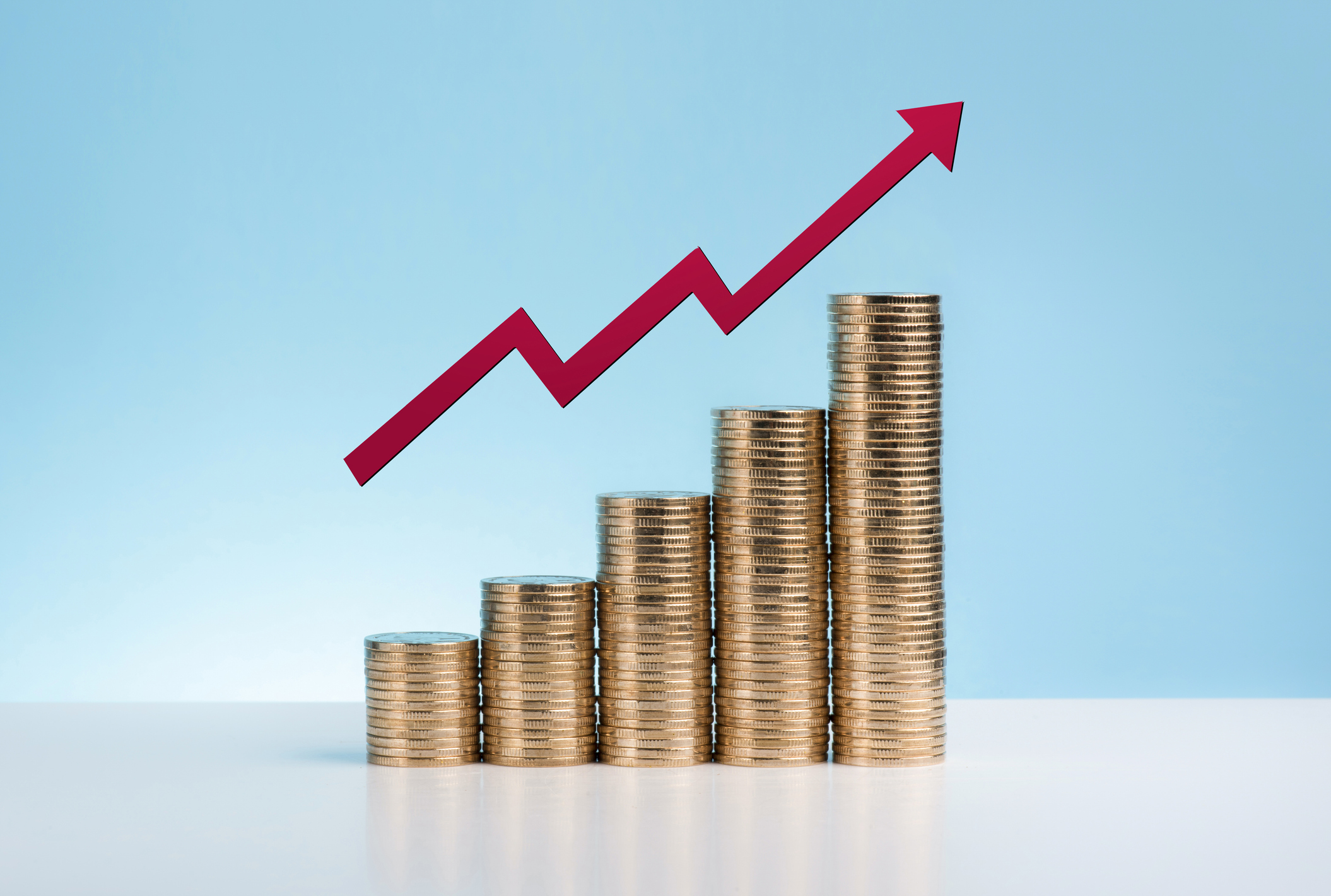I Dump a Loser to Raise Some Cash
Currency risk hurt one of columnist Kathy Kristof’s holdings — giving her one good opportunity to offset capital gains.

Profit and prosper with the best of Kiplinger's advice on investing, taxes, retirement, personal finance and much more. Delivered daily. Enter your email in the box and click Sign Me Up.
You are now subscribed
Your newsletter sign-up was successful
Want to add more newsletters?

Delivered daily
Kiplinger Today
Profit and prosper with the best of Kiplinger's advice on investing, taxes, retirement, personal finance and much more delivered daily. Smart money moves start here.

Sent five days a week
Kiplinger A Step Ahead
Get practical help to make better financial decisions in your everyday life, from spending to savings on top deals.

Delivered daily
Kiplinger Closing Bell
Get today's biggest financial and investing headlines delivered to your inbox every day the U.S. stock market is open.

Sent twice a week
Kiplinger Adviser Intel
Financial pros across the country share best practices and fresh tactics to preserve and grow your wealth.

Delivered weekly
Kiplinger Tax Tips
Trim your federal and state tax bills with practical tax-planning and tax-cutting strategies.

Sent twice a week
Kiplinger Retirement Tips
Your twice-a-week guide to planning and enjoying a financially secure and richly rewarding retirement

Sent bimonthly.
Kiplinger Adviser Angle
Insights for advisers, wealth managers and other financial professionals.

Sent twice a week
Kiplinger Investing Weekly
Your twice-a-week roundup of promising stocks, funds, companies and industries you should consider, ones you should avoid, and why.

Sent weekly for six weeks
Kiplinger Invest for Retirement
Your step-by-step six-part series on how to invest for retirement, from devising a successful strategy to exactly which investments to choose.
In my continuing quest to find something to sell to free up a little cash in my portfolio, I finally decided to focus on the obvious: the financial repercussions of the sale. When you sell stocks that have appreciated, you have to pay tax on the gains. So, all other things being equal, it’s better to sell securities that you hold at a loss. Losses are not taxable, and they provide write-offs to offset some of your other realized gains.
Given that I’ve been investing during one of the greatest bull markets in history, you might think that it would be impossible to find a money-losing stock. After all, the Practical Investing portfolio has climbed 106% in the seven years it has been in existence. But I happen to have a five-year holding that is deeply in the red.
“How did you manage that, O Queen of the Capital Loss?” you ask. It was simple, really. I underestimated the impact of currency risk.
From just $107.88 $24.99 for Kiplinger Personal Finance
Become a smarter, better informed investor. Subscribe from just $107.88 $24.99, plus get up to 4 Special Issues

Sign up for Kiplinger’s Free Newsletters
Profit and prosper with the best of expert advice on investing, taxes, retirement, personal finance and more - straight to your e-mail.
Profit and prosper with the best of expert advice - straight to your e-mail.
Five years ago, I bought stock in a Panamanian airline called Copa Holdings. Copa is a well-run company with an enviable position in the Latin American market. At one point, it was the world’s most profitable airline. When I bought the stock, analysts were crowing about how a hub in Panama—where you don’t have to pass through immigration to fly through to your next stop—was a differentiating factor and would boost key airline metrics, such as load factors (the percentage of seats occupied) and revenue passenger miles (the number of miles traveled by paying passengers).
Copa’s 2017 annual report showed a solid jump in seats and passengers, with higher revenue passenger miles and load factors. The problem? Most of Copa’s customers hail from—and pay in the currencies of—Central and South American countries, where inflation rates are volatile and currencies can plunge in value overnight.
Tough to get paid. That makes it a challenge for Copa to repatriate revenues from those countries. Often, before Copa could exchange the currencies its customers paid with, the currencies had already dropped in value, causing the airline to take massive write-offs.
I am not oblivious to currency risk, but I discounted it when I invested this time. Why? Copa is headquartered in Panama, where currency fluctuation wouldn’t seem to be an issue. The home currency is tied to the U.S. dollar on a one-to-one basis. In fact, you don’t need to convert currency when you go to Panama. Merchants take U.S. dollars as readily as they do Panamanian balboas.
But where a company is headquartered has very little to do with where its customers come from—a lesson worth mentioning to anyone who buys shares in companies that operate internationally (probably all of us). If a big segment of the company’s revenue comes from any one geographic region, watch that region carefully.
In Latin America, which accounts for the bulk of Copa’s business, Venezuela has turned into the region’s flesh-eating virus. In past decades, Venezuela was one of the region’s economic stars, and Copa generated roughly 15% of sales from Venezuelan flights. But troubles have intensified under President Nicolas Maduro, and the country’s economy has slid into oblivion. Meanwhile, the currencies of Brazil and Argentina have fallen in value this year, even as those key markets are swamped by Venezuelan refugees, pressuring their economies.
For Copa, the currency issues and higher fuel costs resulted in declining profits during the second quarter of 2018, despite more seats, more flights and better loads. I do believe that the airline will eventually take off again, but probably not anytime soon. I sold my 114 shares in late August, generating $9,385 in cash and realizing a $5,640 capital loss. At least my tax accountant will be happy.
Profit and prosper with the best of Kiplinger's advice on investing, taxes, retirement, personal finance and much more. Delivered daily. Enter your email in the box and click Sign Me Up.

-
 How Much It Costs to Host a Super Bowl Party in 2026
How Much It Costs to Host a Super Bowl Party in 2026Hosting a Super Bowl party in 2026 could cost you. Here's a breakdown of food, drink and entertainment costs — plus ways to save.
-
 3 Reasons to Use a 5-Year CD As You Approach Retirement
3 Reasons to Use a 5-Year CD As You Approach RetirementA five-year CD can help you reach other milestones as you approach retirement.
-
 Your Adult Kids Are Doing Fine. Is It Time To Spend Some of Their Inheritance?
Your Adult Kids Are Doing Fine. Is It Time To Spend Some of Their Inheritance?If your kids are successful, do they need an inheritance? Ask yourself these four questions before passing down another dollar.
-
 The Most Tax-Friendly States for Investing in 2025 (Hint: There Are Two)
The Most Tax-Friendly States for Investing in 2025 (Hint: There Are Two)State Taxes Living in one of these places could lower your 2025 investment taxes — especially if you invest in real estate.
-
 The Final Countdown for Retirees with Investment Income
The Final Countdown for Retirees with Investment IncomeRetirement Tax Don’t assume Social Security withholding is enough. Some retirement income may require a quarterly estimated tax payment by the September 15 deadline.
-
 Is High-Yield Savings Account Interest Taxable?
Is High-Yield Savings Account Interest Taxable?Savings Accounts Think a high-yield savings account is a good idea? Don’t forget taxes on savings account interest.
-
 How to Beef Up Your Portfolio Against Inflation
How to Beef Up Your Portfolio Against Inflationinvesting These sectors are better positioned to benefit from rising prices.
-
 Taxable or Tax-Deferred Account: How to Pick
Taxable or Tax-Deferred Account: How to PickInvesting for Income Use our guide to decide which assets belong in a taxable account and which go into a tax-advantaged account.
-
 Smart Investing in a Bear Market
Smart Investing in a Bear Marketinvesting Here's how to make the most of today’s dicey market.
-
 How to Open a Stock Market Account
How to Open a Stock Market Accountinvesting Investing can be fun, but you need a brokerage account to do it. Fortunately, it’s easy to get started.
-
 The Right Dividend Stock Fund for You
The Right Dividend Stock Fund for YouBecoming an Investor Dividend stock strategies come in many different flavors. Here's what to look for.